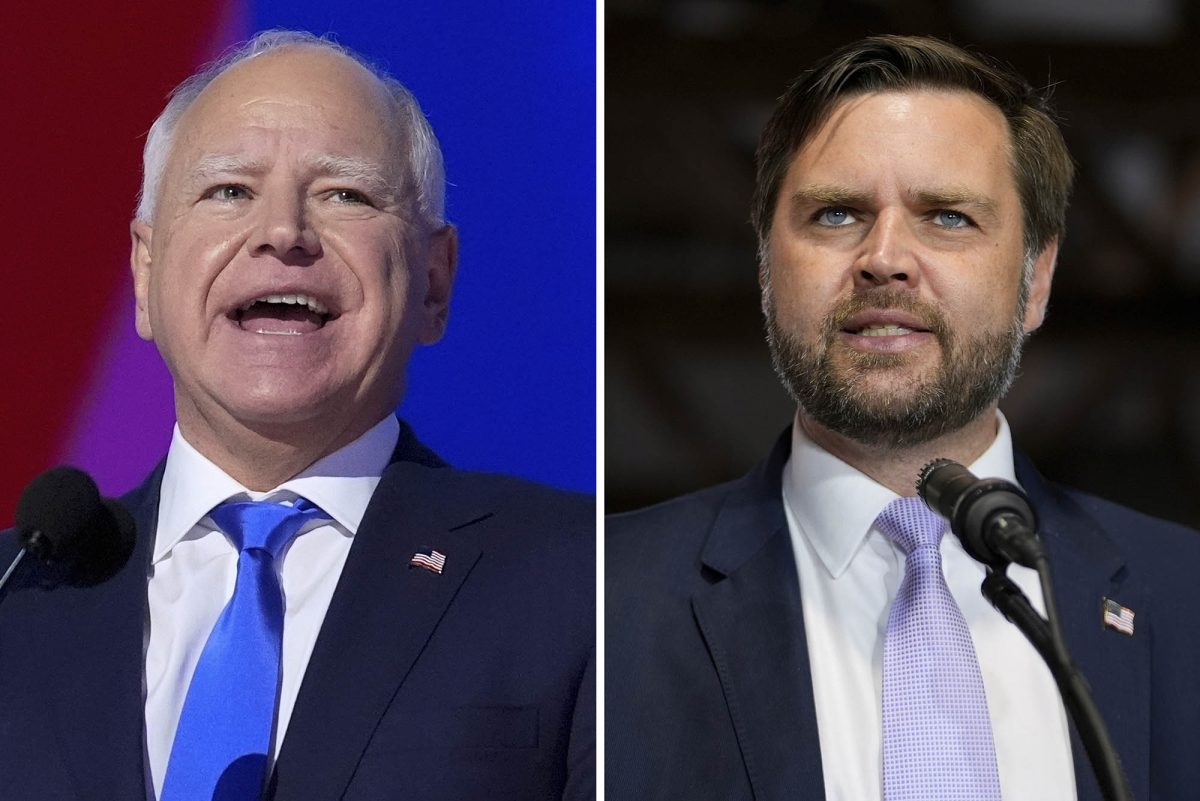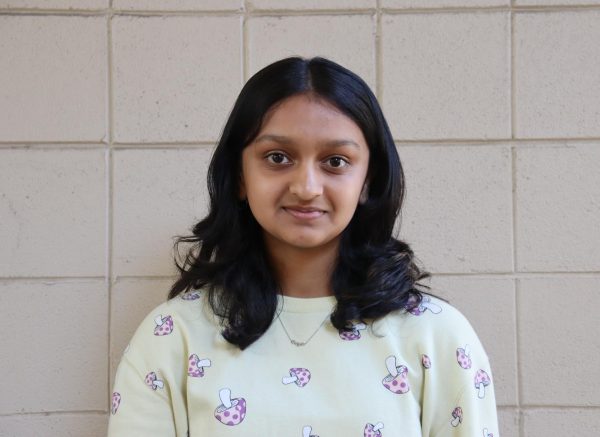On Oct. 1, CBS hosted the only vice-presidential debate for the 2024 presidential race between Ohio Senator J.D. Vance, 40, and Minnesota Governor Tim Walz, 60, a respectable faceoff compared to past recent debates. In the context of the quickly approaching election that features 78-year-old Donald Trump, the oldest man to be a major party candidate for the nation’s highest office, the results of the VP debate are more relevant than ever.
Both candidates contributed to a surprisingly respectable discussion on a few major issues, and had opportunities to showcase aspects of their platform’s policy agenda.
For the most part, the debate was pretty evenly split — Vance stayed confident, and, as the CBS analysis team found, cemented his reputation for being a product of hardscrabble rural America, which had faded due to recent controversial headlines — specifically, Vance conceded pre-debate that he was willing to create falsified stories in order to gain media attention.
Walz had a rougher start, but later found his stride as he became more comfortable and extended the humble and middle class-centered rhetoric which he famously embraced as a previous teacher, coach and governor.
One key distinguishing factor between the Oct. 1 debate and the earlier presidential debate were the rules and moderation. Both debates had no live audience — with over 43 million tuning in online to watch the VP debate, versus the 67 million who watched the Presidential debate. Contrastingly, the participants’ microphones were left unmuted, and for the most part, the candidates respected each other’s speaking time without interruption.
Historically, VP debates have not been shown to have great effects on the outcome of the election. In the 2020 VP debate between Mike Pence and Kamala Harris, Harris saw a 6% increase in her approval ratings versus Pence’s 1% decrease. Harris’ ratings saw a larger jump than even Biden’s ratings in the 2020 race, but the overall approval rating of the Biden campaign saw no significant increase. Biden had already had a slight lead in polls, and he ultimately won the race.
Further back, during the 2016 VP debate between Pence and Tim Kaine, voters said that Pence supported Trump’s platform more effectively than Kaine attacked it. While the race, again, ended with a conservative victory, the polls themselves were not impacted by the debate.
However, the distinguishing factor in this election is the age of the candidates — last election, Trump was 74 and Biden was 78, and now, because Biden chose not to run for a second term, the 2024 election features Harris. The primary reason why Harris was able to take off so quickly was because voters were already familiar with her position and work as VP — the same situation could likely be applicable to Trump if he were to win, thus enabling him to take over the campaign in the future.
In an election which previously had the oldest candidates in presidential history, between Trump and Biden, the concern of health complications affecting main-party candidates has increased significantly. Biden becoming increasingly dysfunctional on the national stage was the reason for the election switch in the first place.
The potential for vice presidents taking over for presidents in the case of emergencies has historically been a strong reason to pick certain candidates. Even Barack Obama, former president, elected to choose Biden as his running candidate because “[Biden] appears by every measure prepared to take over as president” if Obama were unable to continue.
On the right, the debate supports voters’ knowledge about the key candidates and how they function on the national stage. Often, voters know less about their vice presidential candidates because they’re selected later in the race and don’t get as much visibility as the main presidential candidate. One key example is Vance, who was previously unknown, only receiving minimal attention for his best-selling book, “Hillbilly Elegy.”
The civilized VP debate will model productive debates for years to come, instead of pushing people to revert back to the 2020-interruptional-style. The polls, already, are fluctuating rapidly, and may make this race the closest contest ever.




























